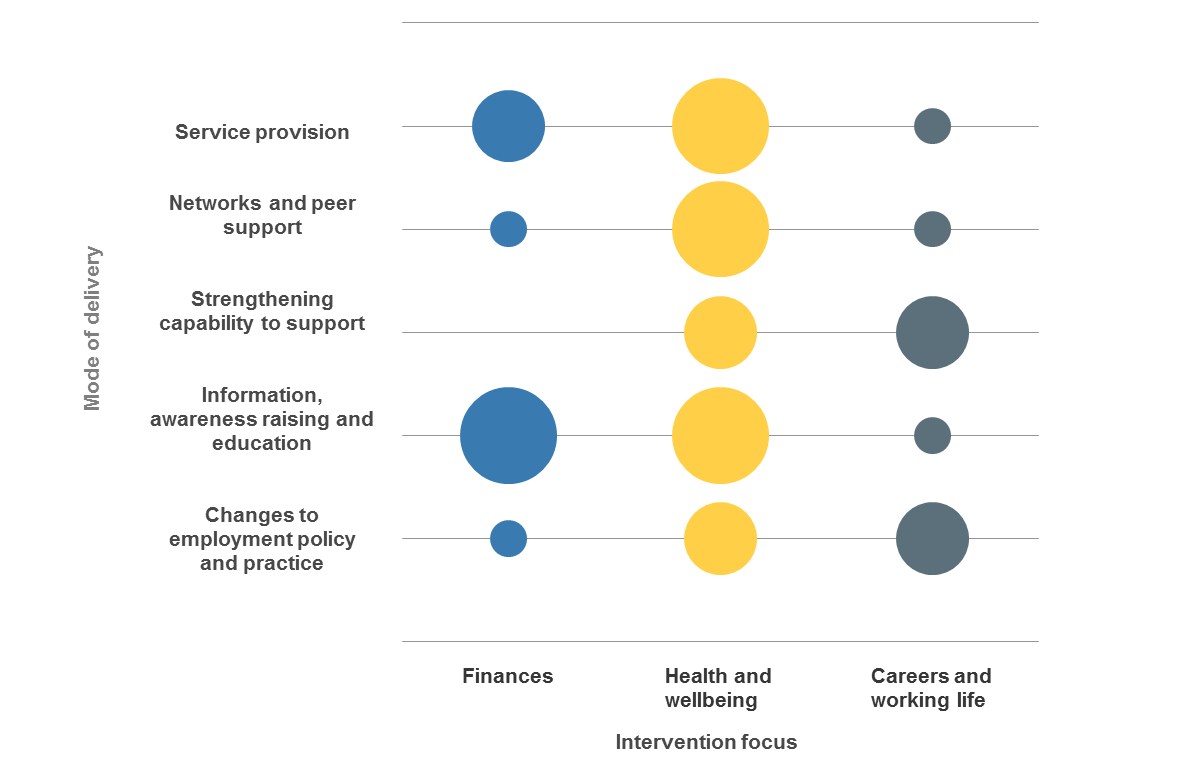Career engagement: what more can be done to support career management in the workplace?
10 Jul 2019
Liz Hey, Research Officer
Rosie Gloster, Senior Research Fellow
The changing nature of work means that people are more likely to change their careers between four and seven times during their lifetime. So, managing career change makes more sense than ever.
Career engagement is important throughout our career life cycle, no matter what age we are and what field we work in. Career engagement has many potential shared benefits for employers and employees, including increased productivity, and job satisfaction. The government launched a mid-life MOT earlier this year, encouraging people to take stock and review their money, work and health and wellbeing, providing links to tools and sources of advice. Organisations such as Business in the Community have encouraged employers to promote the mid-life MOT tool to their employees and to have follow-up conversations.
For most working adults, the employer-employee relationship and the culture and working practices of their employer are fundamental influences on their career. A recent IES study focused on employer support for employees thinking about the future and explored finances; health and wellbeing; and careers and working life. It was least common for large employers to be delivering support in relation to careers and working lives than health and wellbeing and finances. Information, awareness raising and service provision were the least well developed types of delivery for careers support (see Figure 1), indicating a gap in career engagement.
Figure 1: The focus and delivery mode of employer interventions to support employees

Source: Thinking Ahead, 2018
IES has recently evaluated two projects testing different approaches to career management, which are both good examples of career engagement in the workplace.
IES has been working in partnership with Career Innovation (Ci) on behalf of Innovate UK, evaluating Ci’s career development intervention for SMEs; which gives employees access to an online learning platform with a range of tools to aid skills development and career decision-making. It was a self-selective and flexible programme which could be accessed when and where needed. We evaluated the extent to which it had produced positive changes in the attitudes and behaviours of employees and their managers, and if it had the potential to increase productivity at work. Early indications show that accessing the programme had benefits including an increasing confidence among employees and their managers to talk about career management. This, in turn, has benefits for the organisation, with employees more willing to take on responsibility at work. It also helped to create internal networks and a positive culture of development.
The Virtual Life Coach is a chatbot in an app for users to access on their mobile devices or computers. The chatbot gives help and support in a wide number of areas relating to careers and employment. In a similar way to the Innovate UK approach, the chatbot helps the individual to find the information and advice they need, relevant to their job situation and career progression. The chatbot also signposts useful information about the user’s specific workplace and sector. The intention is to increase employees’ confidence and motivation to find out more and have more conversations with their employer about their jobs and careers.
These two innovative approaches to career management show how technology and digital tools can be used to help individuals to manage their own careers. They also provide employers with tools to support staff, alongside encouraging interactions and conversations between employees and managers. Career management is not always a priority in a busy working environment, and it’s not always an easy topic for either employees or employers to approach, yet the evidence suggests it brings distinct advantages.
Here are five ways employees and employers can improve career engagement in the workplace:
- Employers should offer career support: this is an attractive aspect of working for an organisation, and employers should consider career support as a necessary part of supporting and retaining their workforce;
- Employees should take time to reflect and understand themselves better – to work out what is important to them, where their strengths lie and get a sense of where they are going in their careers;
- Make use of flexible, technology-based approaches. These need not be costly, as they can be self-driven and accessed in and outside of work;
- Managers should encourage career conversations as part of professional development - managers should not be afraid to talk to their staff about how they can improve their experience at work or how to help them develop in their careers;
- Employers should aim to monitor and measure career development activities – this will help demonstrate the impact on relationships at work, employee contributions, the levels of job satisfaction and engagement generally.
Any views expressed are those of the authors and not necessarily those of the Institute as a whole.




